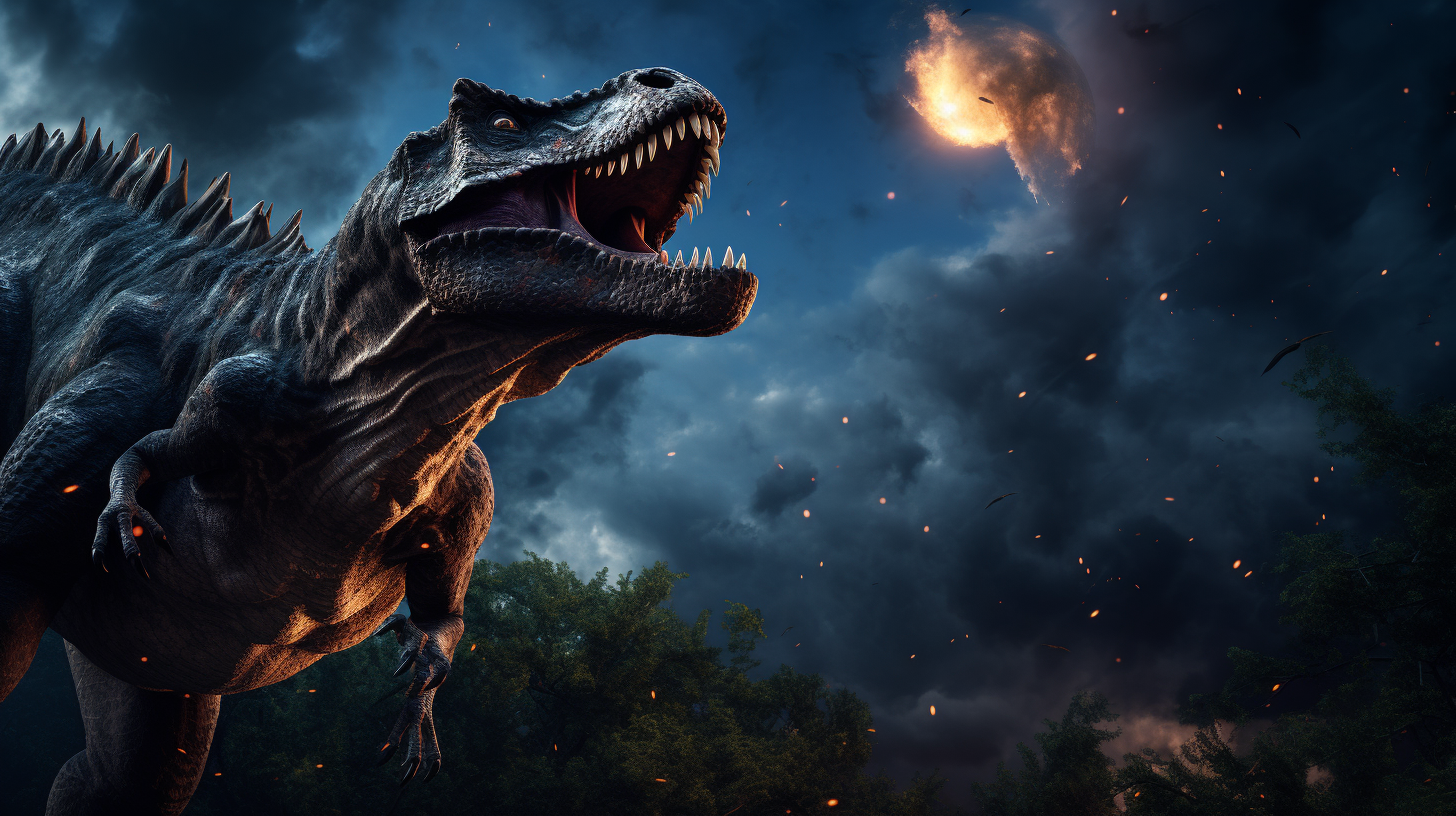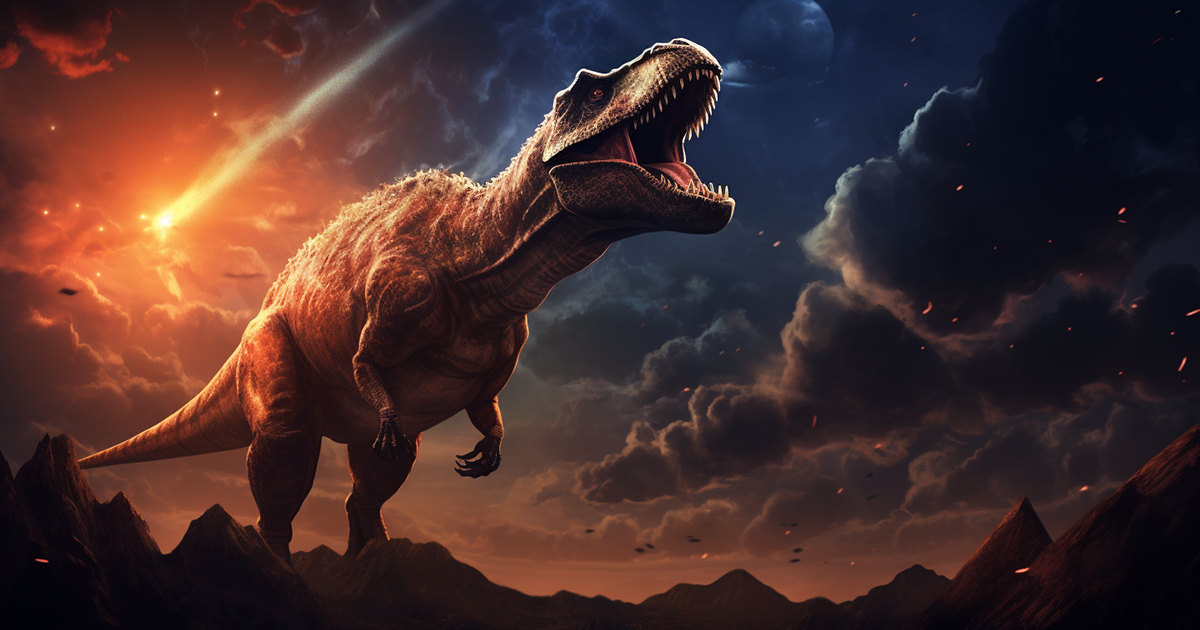Delving into the mysteries of ancient history inevitably brings us to the enigmatic extinction of dinosaurs. Contemplating a scenario where these majestic creatures persevered instigates a sense of wonder: What if the cataclysmic asteroid collision never transpired? Recent scientific findings introduce a captivating notion that has the potential to revolutionize our comprehension of evolution and human progress.
Engage in hypothetical conjectures where scholars propose that had dinosaurs not succumbed to the asteroid catastrophe, a distinct lineage of intelligent beings known as “Dinosauroids” might have arisen as the dominant species on Earth, supplanting humans. This fascinating concept challenges conventional beliefs regarding the evolutionary trajectory that led to the emergence of Homo sapiens.
The storyline transports us approximately 66 million years back to the moment when the Chicxulub impactor struck Earth, initiating the Cretaceous-Paleogene (K-Pg) extinction event. This catastrophic occurrence signified the demise of nearly 75% of all species on our planet, dinosaurs included. Nevertheless, envisage a scenario where destiny intervened, permitting a select group of these ancient creatures to survive and adapt?

The speculative portrayal of Dinosauroids suggests that they would have had ample time to evolve akin to the small mammals that eventually paved the way for the ascent of modern humans. However, what would these intelligent reptilian entities have visually resembled, and what trajectory would their societies have followed? These inquiries kindle our creativity, urging us to venture into uncharted realms.
In this hypothetical scenario, Dinosauroids may have exhibited advanced cognitive capabilities and adept communication skills. Perhaps they would have fostered intricate societal frameworks and cooperative behaviors reminiscent of early human civilizations. Devoid of competition from mammals, they might have flourished and diversified.
Envisage the unique physical adaptations Dinosauroids could have manifested. Their reptilian lineage might have granted them heightened senses or specialized skills finely tuned to their surroundings. Reflecting on the technology they could have devised and the divergence of their world from ours incites curiosity.
Moreover, contemplating the existence of Dinosauroids prompts a reassessment of our rapport with Earth’s ecosystems. How would their presence have influenced biodiversity differently from human impact? In what ecological niches would they have established themselves, and how would they have interacted with other species?
While this speculation offers a captivating avenue for reflection, it remains conjectural, rooted in a series of hypothetical scenarios. The asteroid impact irreversibly altered Earth’s trajectory, ushering in mammalian supremacy and, eventually, the emergence of humans. However, recognizing alternative evolutionary trajectories as a valuable instrument to decipher the intricate tapestry of life on Earth is pivotal.
In conclusion, the concept of Dinosauroids evolving to dominion Earth in lieu of humans presents a stimulating viewpoint on the evolutionary mechanisms shaping our planet. While the mysteries of such a hypothetical circumstance may remain elusive, it encourages us to value the intricate interplay of elements that contribute to our existence and the kaleidoscope of life forms on Earth. The extinction of dinosaurs may signify a momentous juncture in Earth’s chronicles, yet it also inspires innovation, prompting us to explore the myriad potentials within the annals of history.
